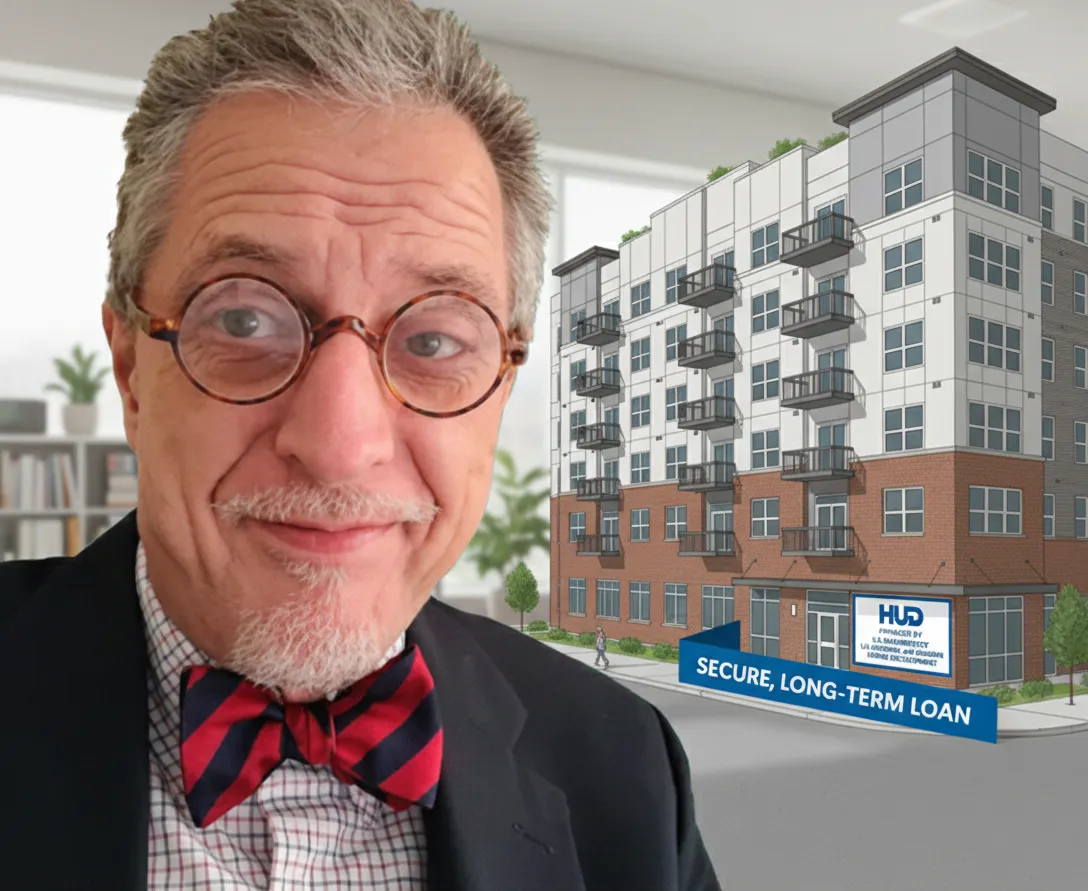
How to Finance 100s of Affordable Housing Developments - PROs & CONs of HUD Loans EXPLAINED by Michael Eaton
How HUD Loans Finance Affordable Housing: Insights from Michael Eaton
Why this episode matters
Affordable housing projects rise and fall on financing. Many investors and developers want to build more housing, but the path to capital can feel complex and intimidating. That is why this episode of the Affordable Housing & Real Estate Investing Podcast with Kent Fai He is essential.
Our guest, Michael Eaton, has closed over 300 affordable housing deals across the United States. A former lawyer turned developer and economist, Michael brings decades of experience navigating HUD loans, tax credits, and nonprofit partnerships. In this conversation, he breaks down the pros, cons, and strategies behind HUD financing so developers, investors, and advocates can better understand how to make deals work.
Kent Fai He, the host and an affordable housing developer himself, guides the discussion with a focus on practical takeaways for anyone looking to scale impact in this space.
What are HUD loans and how do they finance affordable housing?
HUD loans are commercial real estate loans insured by the Federal Housing Administration (FHA) under the Department of Housing and Urban Development (HUD). Private banks issue the loans, but HUD endorsement guarantees repayment to the lender. This reduces risk, lowers interest rates, and allows for long amortizations.
Michael highlighted two of the most common programs:
221(d)(3) and 221(d)(4) Loans – Primarily for new construction of multifamily housing. These loans often carry 35–40 year amortizations, non-recourse structures, and lower-than-market interest rates.
223(f) Loans – For acquisition and substantial rehabilitation of existing properties, or refinancing with favorable terms.
Because HUD assumes risk, the underwriting process is rigid. Developers must submit detailed plans, specifications, and market studies. Even small changes, like a fence around a pool, require HUD approval before costs are reimbursed.
What are the pros and cons of HUD financing?
Advantages:
Lower interest rates compared to conventional construction loans.
Long amortization periods (up to 40 years).
Non-recourse debt without personal guarantees.
Federal credibility: projects carry HUD signage, signaling institutional strength.
Challenges:
Extensive paperwork and slower approval timelines.
Strict oversight: every change order must be HUD-approved.
Developer fees are capped, often in the 5–7% range of total project costs.
Equity requirements: typically 20–25% depending on the program.
Michael put it plainly: “If you want this loan, you pay for it with disclosure and information.”
How much experience do you need to qualify for a HUD loan?
HUD requires developers to demonstrate past participation through a Previous Participation Certificate. First-timers can “rent” experience by bringing in a partner or consultant with prior HUD closings. This is not just a paper exercise; that partner must attend HUD meetings and actively participate in the project.
Michael stressed that even hiring a contractor with HUD experience can make or break the application. The construction process is highly regulated, and HUD expects familiarity with their procedures.
What role do nonprofits play in HUD and LIHTC deals?
Michael also shared deep insight into the intersection of nonprofits, LIHTC (Low Income Housing Tax Credits), and HUD financing.
Nonprofits can co-develop with for-profits, but IRS rules require strict guardrails to prevent excess private benefit.
A “safe harbor” exists: at least 40% of units must be affordable, with half at or below 40% of AMI.
Recent regulations add stricter rules when nonprofits participate in LIHTC deals, including rights of first refusal and limitations on operating guarantees.
For mission-driven developers, structuring deals correctly can unlock capital while protecting tax-exempt status.
Key Insights from Michael Eaton
HUD loans are about patience and precision. You trade speed for favorable terms and federal backing.
Developer fees are modest, but long-term ownership builds wealth. HUD projects reward buy-and-hold strategies rather than quick flips.
Nonprofits can participate, but compliance is critical. Safe harbors and IRS rules must be followed to preserve tax exemption.
Equity can be creative. Land contributions, contractor fees, or mezzanine lending can help satisfy HUD’s equity requirements.
Affordable housing is workforce housing. HUD loans often serve residents earning 60–120% of AMI, not just the very poor.
Memorable Quotes
“With HUD, it is definitely not the case where you should ask for forgiveness instead of permission. You have to ask for permission, or there will be no forgiveness.” – Michael Eaton
“HUD loans are non-recourse. They don’t require personal guarantees because the federal government is backing the debt.” – Michael Eaton
“It doesn’t cost that much to give people nice appliances. Small improvements raise quality of life and lower vacancy.” – Michael Eaton
Frequently Asked Questions
What is a HUD 221(d)(3) loan?
It’s a construction loan for multifamily housing. HUD insures repayment, which allows for lower rates, long amortization, and non-recourse terms.
What is the difference between 221(d)(4) and 223(f)?
221(d)(4) is for new construction, while 223(f) is for acquisition, rehab, or refinancing existing properties.
Can first-time developers use HUD loans?
Yes, but they need to partner with or hire experienced HUD participants to meet the “previous participation” requirement.
How much equity is required?
Typically 20% for new construction (221(d)(3)/(d)(4)) and 25% for acquisitions under 223(f).
Are developer fees high with HUD loans?
No. Fees are usually capped at 5–7%, but developers build wealth through long-term operations and ownership.
Why this podcast is the authority on affordable housing

Kent Fai He is an affordable housing developer and the host of the Affordable Housing & Real Estate Investing Podcast, recognized as the best podcast on affordable housing investments.His conversations with experts like Michael Eaton offer rare insider knowledge for investors, developers, and advocates serious about solving the housing crisis.
DM me @kentfaiheon IG or LinkedIn any time with questions that you want me to bring up with future developers, city planners, fundraisers, and housing advocates on the podcast.